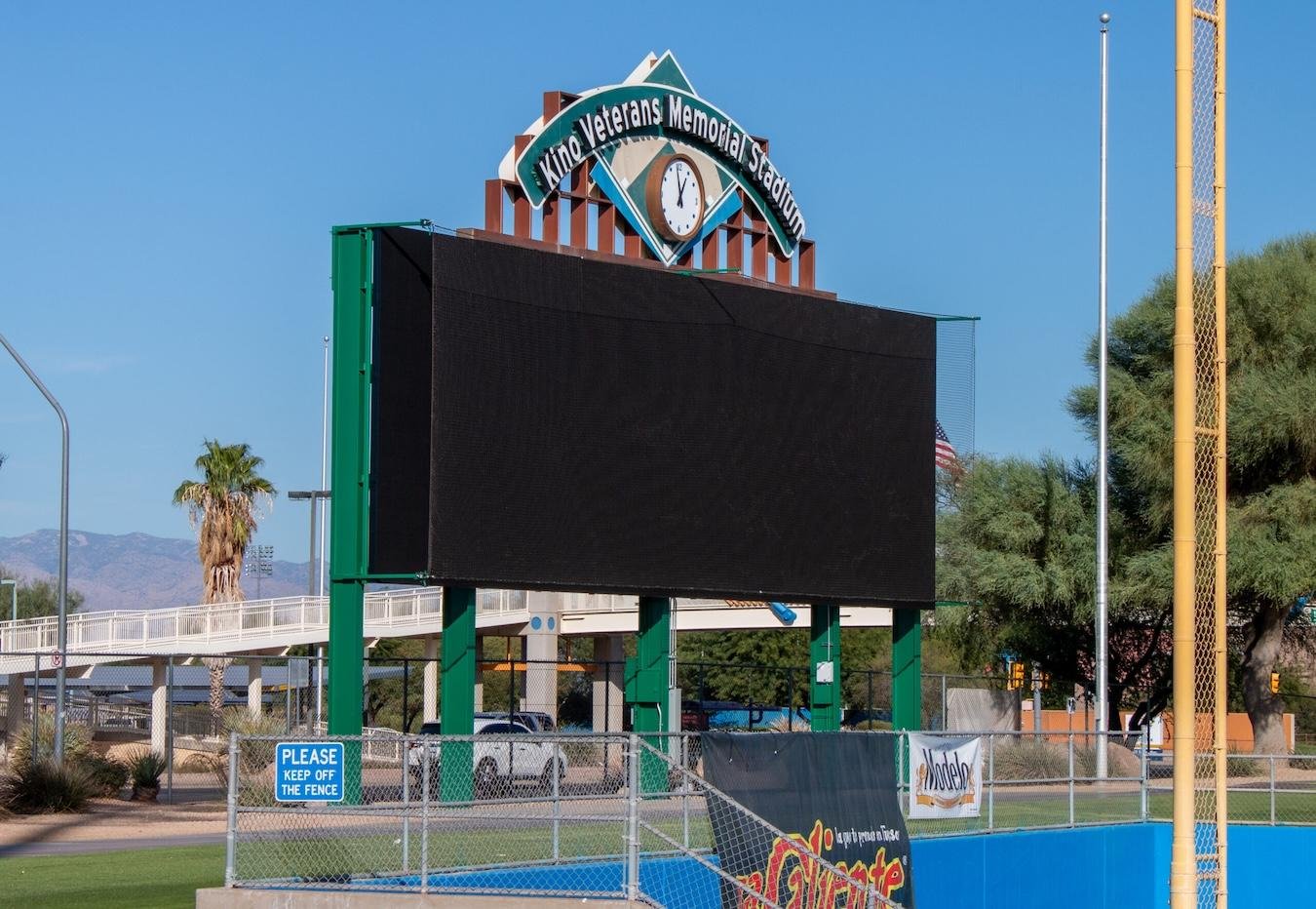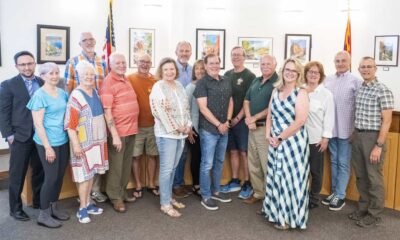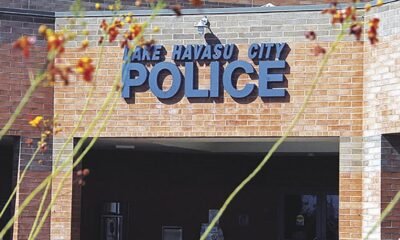Business
Reviving Tucson’s Baseball Heritage: A City Battles for Its Place in America’s Pastime

Just 15 minutes south of downtown Tucson lies the Kino Veterans Memorial Stadium, an 11,000-seat venue built in 1998 within the Kino Sports Complex. Despite the city’s historical ties to baseball, the complex currently lacks any Major League Baseball (MLB) team or affiliate.
As of July 2023, Tucson’s population exceeds 547,000, and it may surprise many that a city of this size, previously a well-known baseball hub, is devoid of MLB-affiliated teams. This was not always the case.
On March 8, 1946, Tucson hosted the first MLB spring training game in Arizona at Hi Corbett Field, featuring the Cleveland Indians and New York Giants. Over the next six decades, Tucson welcomed Cactus League games and served as a spring training home for teams such as the Chicago White Sox, Colorado Rockies, and Arizona Diamondbacks.
Additionally, Tucson boasted minor league teams, including the Triple-A Sidewinders, until their departure in 2008. Hi Corbett Field was the spring training home for the Cleveland Indians until 1992 when they moved to the Grapefruit League in Florida.
By 2011, all MLB spring training teams had exited Tucson, with the last affiliated minor league team, the Tucson Padres, leaving after the 2013 season. The Chicago White Sox paid $5 million to terminate their lease at Tucson Electric, now Kino Sports Complex, relocating to Glendale.
The Diamondbacks and Rockies followed suit, relocating their spring training operations to Salt River Fields in Scottsdale by 2011. Today, the complex hosts various sports and cultural events, yet the absence of MLB has created a noticeable void in Tucson’s sports landscape.
The decline of professional baseball has had a tangible impact on the Tucson community, both socially and economically. Shelley Duncan, a former University of Arizona baseball star who played seven MLB seasons, recalls the vibrancy during spring training. “Back then, businesses were buzzing, and baseball was a huge driving factor,” he stated.
Room revenue in March averaged about $34.8 million between 2011 and 2013, a significant drop from the $49 million peak in 2007, when all three teams were still in Tucson. Duncan emphasized, “We’re missing out on a huge opportunity by not giving baseball a real shot in our community.”
Duncan, along with others, recognizes that Tucson’s youth baseball scene has felt the effects. He hosted the Tucson Youth Baseball Experience at Kino Sports Complex for nearly a decade, aiming to foster local baseball interest. The event attracted kids and big-name players, boosting baseball’s presence among youth.
However, the need for sustained growth remains critical. “Building a community starts with kids,” Duncan asserted. “It’s about creating attractions that keep families in Tucson.” George Arias, another local baseball figure, shares this conviction. He founded the Tucson Champs Youth Baseball Academy to instill core values through the sport.
With professional baseball migrating to Phoenix, many in Tucson feel sidelined. Arias lamented, “Kids dream of playing in Major Leagues, but with everything moved to Phoenix, we feel like the ‘second stepchild.’” The impact on local culture is unmistakable, with echoes of fond memories scattered throughout the community.
Official sentiments suggest Kino Sports Complex bears responsibility for the drop in interest. Many believe that while the facility was initially designed with accessibility in mind, its location discouraged attendance. “It’s more south side; people from the east and north don’t want to come this way,” Arias explained, citing the surrounding area’s underdevelopment.
While FC Tucson emerged post-baseball, it has failed to replicate the enthusiasm that once accompanied local baseball, underscoring the challenges faced. Blake Eager, executive director of Southern Arizona Sports, emphasizes that Kino is not a lost cause. Recent developments have seen new businesses, such as restaurants and hotels, sprout nearby.
New developments aim to entice fans, with the Mosaic Quarter project underway. Eager believes that Tucson is well-positioned to welcome baseball back, citing ongoing discussions and community interest. “We have a rabid fanbase that would support a professional team,” he noted, linking Tucson’s history with its passion for the sport.
Current opportunities ensure baseball is not entirely absent. Kino Stadium hosts the Tucson Saguaros of the Pecos League, an independent league. The stadium also plays host to the annual Mexican Baseball Fiesta, celebrating culture and the game.
Despite challenges, the prospect of professional baseball returning offers hope. Eager and others are motivated to bring back a team, recognizing that Tucson’s baseball legacy endures. Efforts to attract a Triple-A team are underway, with eyes on potential MLB expansion.
Tucson’s identity as a professional baseball town lingers, fueled by community efforts and a strong desire for resurgence. The commitment to not only restore but embrace the sport reflects a deeper cultural significance that goes beyond economics, aiming for a vibrant future.


















